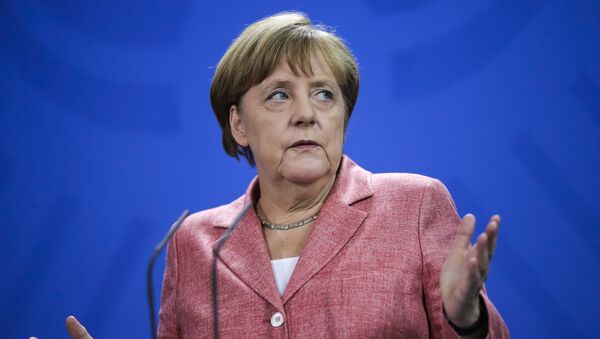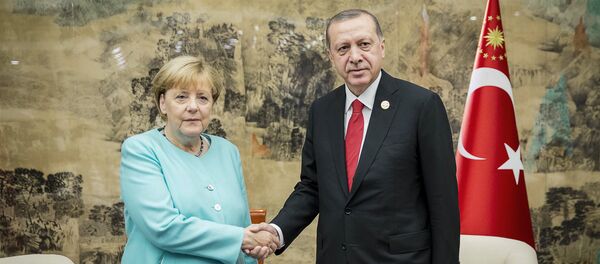On Sunday, the CDU came in third in the former East German state's elections with 19 percent of the vote; it was beaten by both the populist right-wing Alternative for Germany (AfD) party, which won 20.8 percent, and the ruling Social Democrats (SPD), which obtained 30.6 percent.
Commenting on this, Fried, on the one hand, recognized that the AfD party won less votes than experts predicted, while the CDU lost votes, but not the chance to participate in the formation of the government of the Mecklenburg-Vorpommern state.
The CDU and the SPD, traditionally Germany's largest parties, already have a so-called "Grand Coalition" with Bavaria's Christian Social Union party (CSU), the CDU's traditional ally in the federal legislature.
DailyTelegraph quotes Merkel as"personally" taking responsibility4local election defeat.So why has she not resigned? pic.twitter.com/LWjpWohdqh
— Richard Werner (@ProfessorWerner) 6 сентября 2016 г.
Her party's principal rival, AfD, appeared on the German political scene only three short years ago with a Eurosceptic platform in the EU's strongest economy. However, it was the influx of over a million refugees at Merkel's invitation in 2015 that thrust AfD into the spotlight as called the future of Germany's political establishment into question.
With Germany's 2017 federal elections swiftly approaching, now everything depends only on Merkel, according to Fried.
"This is an emergency situation, and as far as the year of 2017 is concerned, the Chancellor should only consider two emergency options," he said.
The first option would be for Merkel to stick to her policy at any cost, because any change will be perceived by Merkel's opponents as a tactical maneuver, according to him.
Looks like AfD did well in #Germany regional elections. But no better than expected. Doesn’t change our view that Merkel will win in 2017
— Robin Bew (@RobinBew) 5 сентября 2016 г.
Fried claimed that if Merkel continues to adhere to her policy, it could lead to a national referendum on the migration issue, which he said would not necessarily mean a deadlock for Merkel.
The second option is for Merkel to simply resign, which would certainly be viewed by Merkel's opponents as her political surrender.
"At the same time, it could become a nightmare for many of Merkel's critics will, because by possibly deciding to step down Merkel may 'turn off the light' for all those who see her as an arch foe," Fried said.
Speaking to reporters at the G20 summit in the Chinese city of Hangzhou late last week, Merkel said that she would continue to pursue her policy on migration, in spite of growing nationalism and demands for a cap on the number of refugees Germany will accept.
However, Jon Worth, political consultant and EU policy specialist, told Sputnik that Merkel is "not as strong as she was, but she still is immensely strong and broadly trusted within Germany."
According to him, Merkel will probably stand for a fourth term in next year's federal election.
"There are no other viable successors to her within the Christian Democratic Party. Her party is still ahead in the polls despite the lessening of support for Merkel as an individual. She knows her coalition partners, the SPD, are not doing particularly well either. So, overall, she is still in a very strong position," he said.




